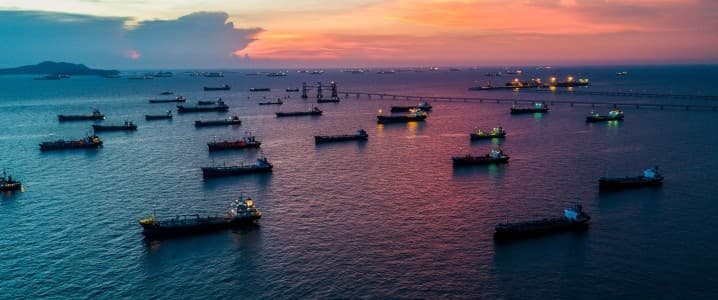A decade-long effort to make the shipping industry the first to adopt binding international emissions targets has fallen apart—this time not over science or technology, but timing and cost. The breakdown leaves oil demand from marine fuels largely untouched for now, a relief to refiners and traders watching for signs of a forced pivot toward costly biofuels or ammonia blends.
The International Maritime Organization (IMO) meeting in London this week was meant to finalize a framework first agreed in April, setting out how shipowners would transition to cleaner fuels starting in 2028. Instead, the session ended abruptly after a motion led by Saudi Arabia—to delay talks by a year—passed by a narrow margin. The result: no deal, and no clear path forward.
The now-stalled framework would have required shipowners to gradually cut the carbon intensity of their fleets or face penalties, a move broadly welcomed by the industry as a way to create global consistency. The IMO had estimated that shipping emissions—about 3% of the global total—could climb by as much as 150% by mid-century without action. The agency has long been more comfortable writing rules about ballast water and bridge safety than carbon math, so pushing a climate mandate this far was already a stretch for the famously cautious body.
Industry players had hoped a unified standard would bring predictability to long-term investment decisions. “Industry needs clarity to be able to make the investments,” said Thomas Kazakos, secretary-general of the International Chamber of Shipping, after the vote.
Instead, the collapse leaves uncertainty hanging over a sector responsible for moving 90% of global goods—and which has struggled to decarbonize due to cost and fuel availability. The economics remain stubborn: marine diesel is still far cheaper and more energy-dense than emerging alternatives like ammonia or methanol.
While environmental groups called the delay a blow to climate progress, many in the sector say the pause might allow time to refine the framework and ensure compliance mechanisms don’t create trade distortions or consumer price shocks.
Still, with the next round of talks not scheduled until April, the original 2028 implementation timeline looks increasingly out of reach.
By Julianne Geiger for Oilprice.com
More Top Reads From Oilprice.com:

